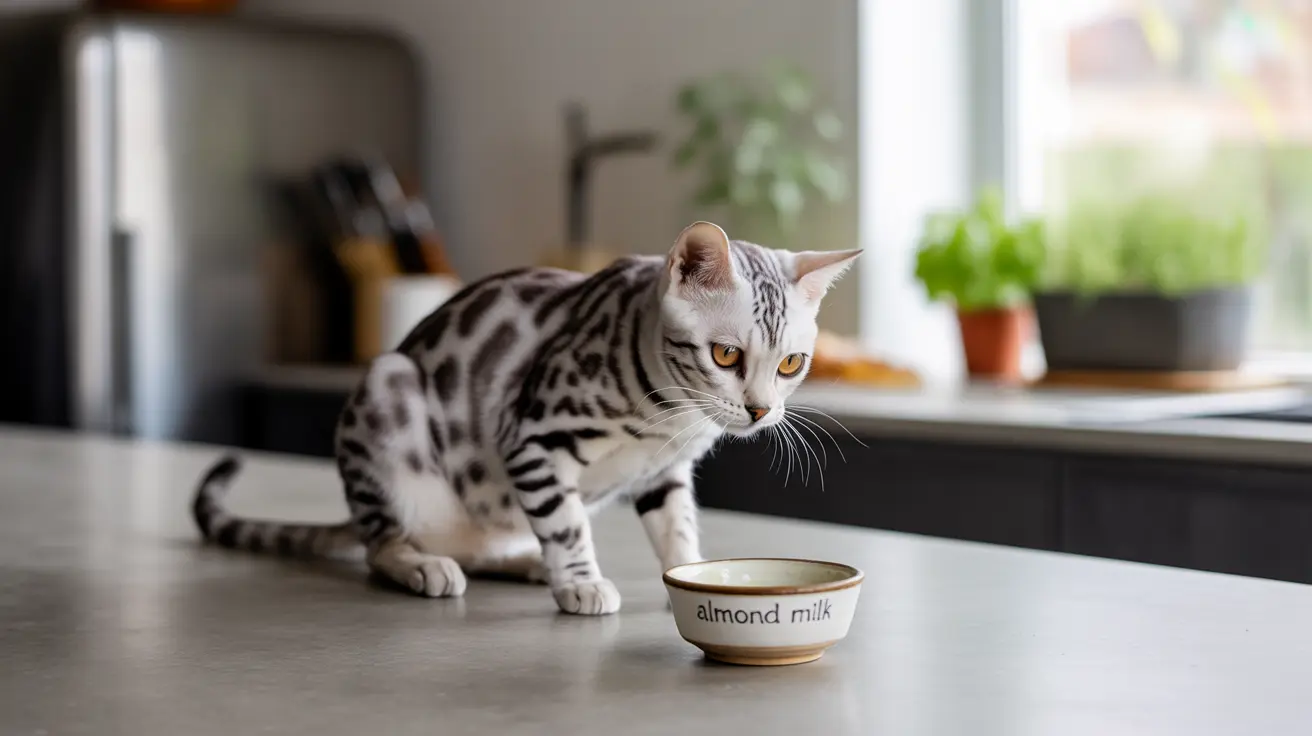As more people switch to plant-based milk alternatives, many cat owners wonder about sharing their almond milk with their feline friends. While almond milk isn't toxic to cats, the relationship between cats and this trendy beverage is more complicated than you might think. Let's explore whether cats can safely consume almond milk and what you need to know about its effects on feline health.
Understanding Cats' Nutritional Needs
Cats are obligate carnivores, meaning their bodies are designed to derive nutrition primarily from meat sources. Their digestive systems are specifically adapted to process animal proteins and fats, not plant-based beverages like almond milk. This fundamental biological fact shapes how we should view almond milk in relation to feline nutrition.
The Truth About Almond Milk and Cats
While almond milk is lactose-free and technically safer than cow's milk for cats, it provides virtually no nutritional benefits for your feline companion. A typical serving of unsweetened almond milk contains only about 0.4g of protein and minimal essential nutrients that cats actually need.
Potential Risks and Side Effects
Feeding almond milk to cats can lead to several health concerns:
- Digestive upset including diarrhea and vomiting
- Empty calories contributing to weight gain
- Possible allergic reactions
- Complications from added sweeteners or preservatives
Safe Consumption Guidelines
If you choose to offer almond milk to your cat, follow these important rules:
- Limit portions to no more than 1-2 teaspoons occasionally
- Only use plain, unsweetened varieties
- Monitor for any adverse reactions
- Never replace water with almond milk
Alternatives and Better Options
Instead of almond milk, focus on providing your cat with:
- Fresh, clean water at all times
- High-quality cat-specific food
- Veterinarian-approved treats
- Cat milk replacers if necessary (for kittens only)
Frequently Asked Questions
Can cats safely drink almond milk and how much is acceptable?
Cats can safely consume small amounts of plain, unsweetened almond milk occasionally. The recommended limit is 1-2 teaspoons no more than twice a month. However, it's not necessary or nutritionally beneficial for cats.
Why is almond milk not recommended as a regular part of a cat's diet?
Almond milk lacks essential nutrients cats need, contains empty calories, and may cause digestive issues. As obligate carnivores, cats require animal-based proteins and nutrients not found in plant-based milk alternatives.
What potential digestive problems can almond milk cause in cats?
Cats may experience bloating, diarrhea, vomiting, gas, and stomach cramps after consuming almond milk. These symptoms can be more severe in cats with sensitive digestive systems or existing gastrointestinal conditions.
Are flavored or sweetened almond milks dangerous for cats?
Yes, flavored and sweetened almond milks can be dangerous for cats. They often contain artificial sweeteners (like xylitol, which is toxic to pets), added sugars, and flavorings that can harm cats.
How does almond milk compare to cow's milk and other milk alternatives for cats?
While almond milk is lactose-free unlike cow's milk, neither is suitable for cats. Both provide minimal nutritional value and can cause digestive issues. The best liquid for cats is always fresh, clean water.
Conclusion
While almond milk isn't toxic to cats in small amounts, it offers no nutritional benefits and could potentially cause health issues. Instead of sharing this trendy beverage with your feline friend, stick to providing fresh water and a balanced, species-appropriate diet. If you're concerned about your cat's nutrition, consult with your veterinarian for professional guidance tailored to your pet's specific needs.






